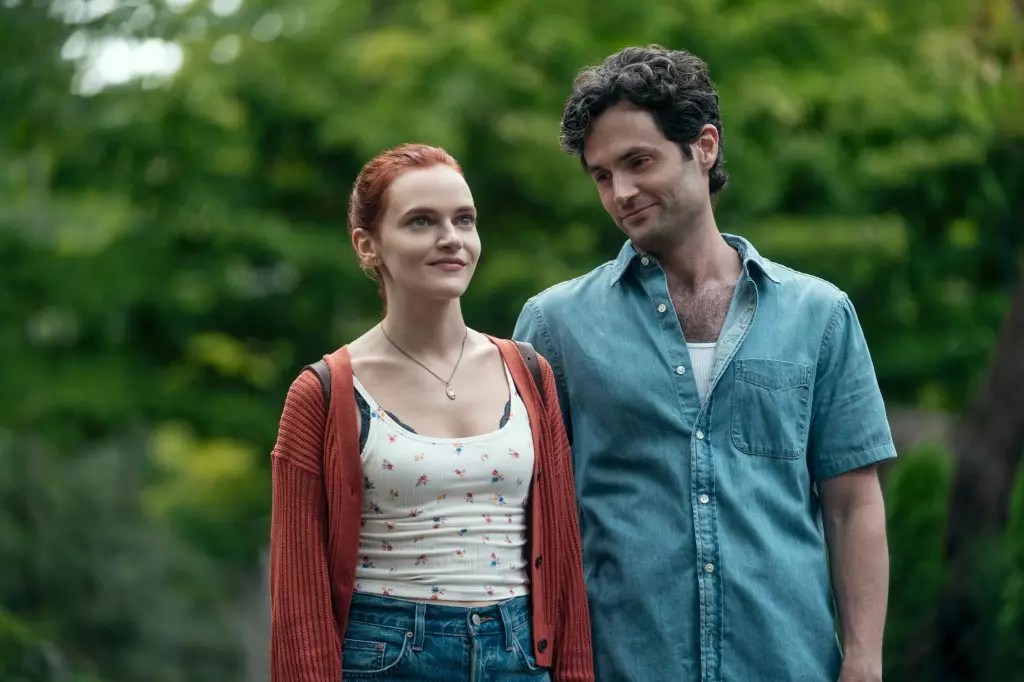In the realm of television, few characters have evoked as strong a blend of fascination and revulsion as Joe Goldberg, portrayed masterfully by Penn Badgley in the psychological thriller series, *You*. In an era where complex villains often find redemption or audience sympathy—even the most heinous of characters are allowed to wear a mask of humanity—it is largely refreshing to witness a show that staunchly upholds the notion that some actions are simply unforgivable. The recent finale leaves viewers to grapple not only with Joe’s twisted psyche but with society’s feminist reckoning, forcing us to question: Can someone truly escape the consequences of their actions?
Exploring the Supernatural Alternate Ending
As the showrunners, Michael Foley and Justin Lo, revealed in a candid interview, one of the initial concepts for the series’ finale involved a supernatural twist—Joe becoming a ghost following his fatal encounter with a new love interest, Bronte. This alternative ending bears the mark of typical Hollywood creativity, where fantasy often intertwines with horror. The idea of Joe retracing his steps in the mortal world as a spirit would have vacated him of responsibility, turning him into a tragic figure caught in a limbo of his own foul design. Herein lies a critical misstep many television narratives make: romanticizing grotesque characters simply for the sake of narrative complexity.
To suggest that Joe’s death could act as a redemptive arc undermines the moral fabric pivotal to the show’s core. The notion of granting him liberation from accountability through the whimsical lens of a ghost story reflects a concerning trend in pop culture—glorifying characters infamous for their toxic behaviors while conveniently glossing over the damage they have inflicted on real lives. Had the creators gone down this path, not only would it have diluted Joe’s impact as a symbol of the dangers of toxic masculinity, but it would also have left audiences without a satisfying reckoning.
Joe’s Final Lesson: Confrontation or Confinement?
Ultimately, the exposition of Joe’s imprisonment served as a palpable commentary—a visceral reminder that justice may not always mirror a linear narrative of right versus wrong. The decision to confine Joe in a prison cell, stripped of the comforts of his previous life and devoid of relationships, reveals an insightful understanding of his character’s essence. Here, Joe is not just a monster but a man utterly alienated from the world he preyed upon. The creators took a stand, opting for a narrative that insists on the fundamental principle of accountability over fantastical notions of redemption.
This decision resonates deeply, especially in light of contemporary discourse surrounding the consequences of abuse and power dynamics in relationships. Badgley’s assertion about the complexities of revenge and justice speaks volumes. It’s not just about Joe facing the repercussions of his harassment and manipulation; it’s about the ripple effect such acts create—burdening victims with the weight of their choices, often leading them down paths as shadowy as Joe’s own.
The Incessant Voice of Justification
In the series finale, Joe’s persistent self-victimization through the familiar voiceover serves as a stunning critique of how abusers often rationalize their behavior. Even as he sits behind bars, he still clings to the illusion of societal injustice—a chilling reminder that the psychological scars run deep, affecting both the abuser and the victim in equal measure. Rather than achieving a moment of true self-realization, Joe continues to distort reality, lingering in a state of delusion. His fate is not one of rest but of restless turmoil—a self-imposed prison of guilt and denial.
This portrayal challenges viewers to reflect on the often unspoken fragility of the human condition, particularly how narratives around individualism can shield those who inflict harm. Joe’s journey complicates our understanding of villainy, withholding easy answers and epiphanies that might render him ‘redeemable’ in the eyes of society. The finale emphasizes accountability, but also raises a haunting notion—can true understanding and atonement ever coexist for a soul as fractured as Joe’s?
In navigating these intricate themes, *You* becomes more than a thrilling ride; it is a dark exploration into the heart of predatory behavior and the societal constructs that foster it, forcing us to confront not only Joe Goldberg but the shadows lurking within ourselves.
